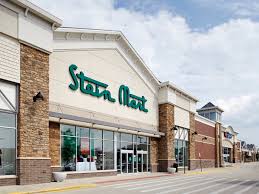Monday’s with Martens 3.5.18
In our Year End 2017 Market Update that was shared last week, we observed that “changing demographics, consumer expectations and omni-channel retailing will reshape retail in the Wichita market. National retailers, new to the market, will continue to look to free standing power center locations and available space in well located and maintained lifestyle and enclosed mall properties. Entertainment, health and fitness and restaurants remain popular shopping center tenants. Store closings and consolidation will continue and the sector will need stronger population growth and an increase in household income in order to maintain the momentum.”
To further expand on the changes taking place in the retail sector our research team dug a little deeper while looking at the headlines dominating the industry. There is no question that large, undifferentiated retail has been in trouble for some time. However, the headlines about the closing of American retailing is an overreaction.
In a review of STORE’S Magazines Hot Retailers there is a distinct lack of big-box general merchandise retailers on the chart — no Walmart, no Target, no Costco, no department stores — while there are plenty of businesses that exhibit differentiation in the marketplace, innovative merchandising and customer value propositions. What is hot in retailing is what is different. And what’s different is a little bit of everything. What isn’t happening is the collapse of brick-and-mortar retailing. A bigger issue is that retailers are losing “in-store” shoppers. There has been a consolidation in [shopper] trips, so shoppers are shopping loyally. They’re making fewer trips but buying more.

Older, traditional retailers have been operating on business models that served them well in the past. This is evidenced by the fact that four of the top five Hot Retailers are e-commerce businesses. Most of the Hot Retailers have carved out a niche for themselves and grow their businesses by exploiting the opportunities within that niche. One niche area that is very well represented on the Hot Retailers chart is groceries, which represent a fifth of all Hot 100 Retailers
Mall-based retailers will still face possible struggles. The current challenge is for big-box operators to ask themselves how they are going to use the available space. The answer will be that the big box anchors will become more “a mall-in-the-box”, a place with multiple stores within a store.
Following a year where we heard about record level store closings and the local media having highlighted local closings, the IHL Group just published a report that shows for each company closing a store, 2.7 companies are opening a store. According to their data, 751 brands opened stores while 278 are reducing store counts. What has changed is that the majority of retailers opening new stores are discounters. Many US shoppers gravitated toward discount stores during the recession and many never returned to shopping full price. That coincided with the change in how Americans spend their money. Shoppers are now devoting a smaller share of their wallets to clothing and accessories and instead spending more on big-ticket items like cars and travel, as well as food, technology, and health care. Shoppers are also purchasing more online. At the same time, mall visits have dropped precipitously.
Major retailers that once dominated with brick-and-mortar stores have recently battled to keep pace with shoppers who are increasingly taking their business online. A recent study from Pew Research Center found that nearly 80 percent of Americans do at least some shopping on the internet, with 43 percent shopping online “weekly” or “a few times a month.” Shoppers have not written off in-store purchases entirely, but the trend toward internet-based retail has manifested in rounds of store closings and company announced cost-cutting initiatives.

We fully anticipate that locally these national trends will continue to be evident. We can also count on additional stores closings and we can look forward to a number of brands defying the “retail apocalypse”. Store closures in Wichita have been more than offset by the number of new national retailers expanding in the market including DSW, Stein Mart, H & M, Cavender’s, Mardel’s, Bassett Furniture, Home Goods among others. On the restaurant front there have been a few closures but most have been back filled with new concepts, the expansion of existing ones or new eateries, such as 6S Steakhouse, Fuzzy’s Tacos, a second Texas Roadhouse, Slim Chickens and Zoe’s Kitchen to name a few.


